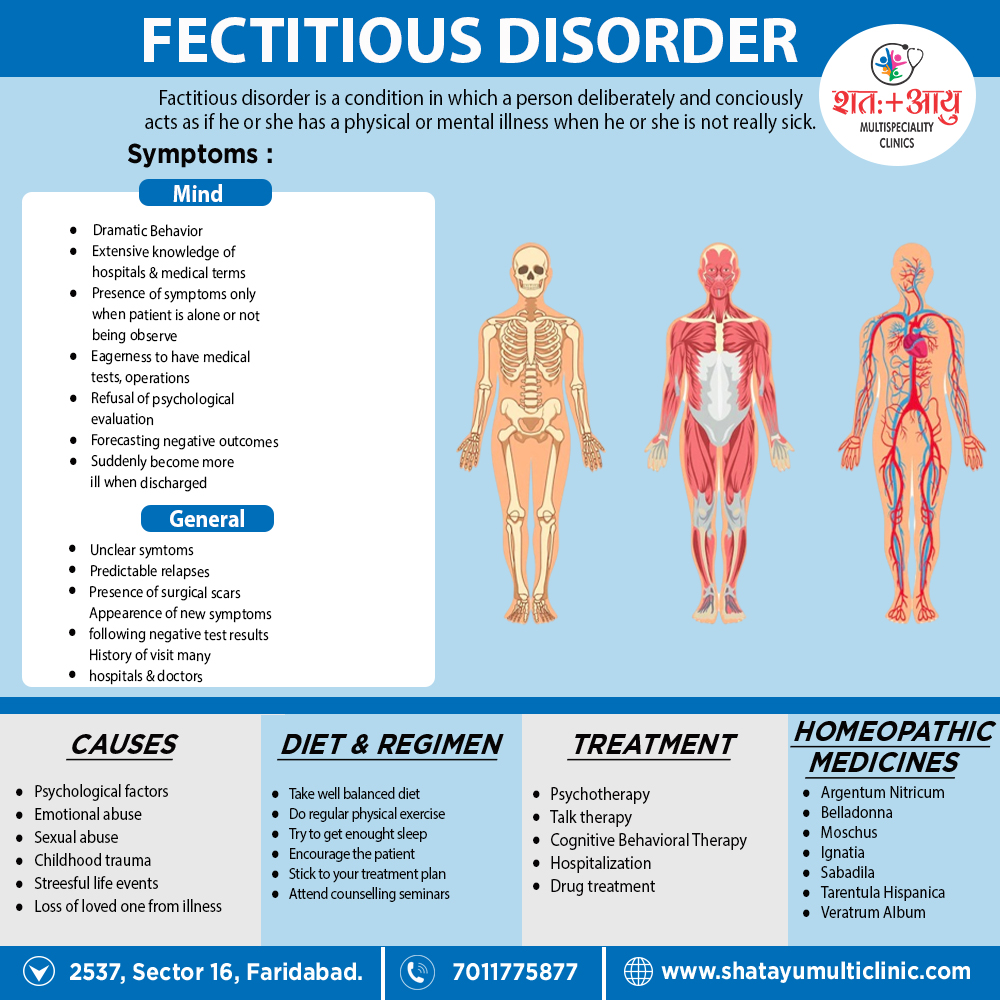Diagnosis
Generally, Diagnosing factitious disorder is often extremely difficult.
In detail People with factitious disorder are experts at faking many different diseases and conditions.
And often they do have real and even life-threatening medical conditions, even though these conditions may be self-inflicted.
The person’s use of multiple doctors and hospitals, the use of a fake name, and privacy and confidentiality regulations may make gathering information about previous medical experiences difficult or even impossible.
Diagnosis is based on objectively identifying symptoms that are made up, rather than the person’s intent or motivation for doing so.
A doctor may suspect factitious disorder when:
- The person’s medical history doesn’t make sense
- No believable reason exists for an illness or injury
- The illness does not follow the usual course
- There is a lack of healing for no apparent reason, despite appropriate treatment
- There are contradictory or inconsistent symptoms or lab test results
- The person resists getting information from previous medical records, other health care professionals or family members
- The person is caught in the act of lying or causing an injury
Physician may use the criteria for factitious disorder in the Diagnostic and Statistical Manual of Mental Disorders (DSM-5), published by the American Psychiatric Association. [2]

